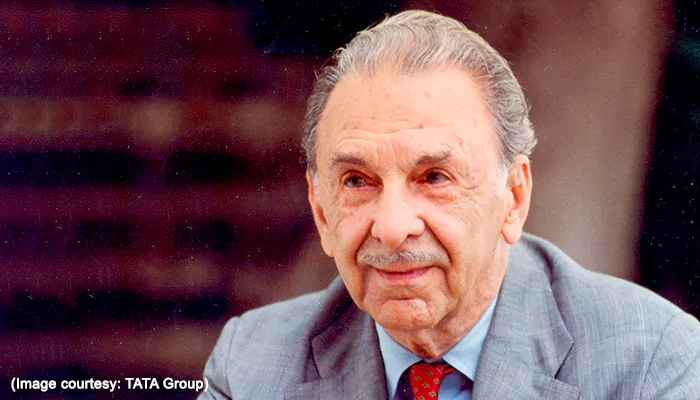World EV Day Special: Exploring The Key Challenges In India's Electric Vehicle Adoption
- Sayan Paul
- 1 year ago
- 4 minutes read

What's stopping the mass adoption of electric vehicles in India? Let's find it out on World EV Day!
It's the 5th World Electric Vehicles (EV) Day today – dedicated to spreading awareness about EVs and advocating the shift towards sustainable transportation. In recent years, EVs have garnered enormous attention globally, thanks to their potential to reduce carbon emissions and improve air quality. And India, one of the world's largest automobile markets, is certainly not lagging in this step, with the government launching various policies and initiatives (including the National Electric Mobility Mission Plan). Nitin Gadkari, Union Minister of Road Transport and Highways, has time and again stressed the need for mass EV adoption and local manufacturing. And he recently announced that EV manufacturers do not need any more subsidies from the government.
India's EV scene has improved immensely over the years, with the central government aiming to make 30% of all vehicle sales electric by 2030. Also, according to experts, over 10 million direct jobs and 50 million indirect jobs could be created in this sector in the coming years, contributing significantly to the country's growth.
🚙🔋 | #UnionMinister for Road Transport and Highways, #NitinGadkari, has indicated that the need for subsidies and incentives for electric vehicles #EVs may not last beyond the next two years.
— Business Today (@business_today) September 9, 2024
➡️ Speaking at ACMA’s annual event, Gadkari highlighted how the costs of electric… pic.twitter.com/ZktAbZpNde
(Credit: Business Today)
This looks remarkably promising. However, despite the progress, it's still far from achieving the goal of widespread adoption of EVs – due to various challenges.
Higher Cost
Inarguably, the main obstacle to India's EV adoption is its overall higher cost. Compared to traditional vehicles, electric vehicles have a higher upfront cost, making them less affordable for Indians. Also, everything from their batteries to motors to other parts is relatively more expensive.
However, a report by the Rocky Mountain Institute (RMI) suggested that the battery costs of EVs could be reduced in coming years, increasing sales at least six-fold by 2030.

Mahindra & Mahindra's electric vehicles on display at the company's stall at Auto Expo in Greater Noida
Also, while speaking at the 64th annual session of the Automotive Component Manufacturers Association (ACMA), Nitin Gadkari said that the prices of EVs would be the same as the prices of Diesel and Petrol vehicles within the next 2-3 years without the need of subsidies.
Lack Of A Robust Infrastructure
The mass adoption of EVs requires robust infrastructure - which is clearly not present in India. Especially, the charging network across the country is very limited, particularly in tier 2 and tier 3 cities. Also, there's inconsistent power supply in several parts of India, not to mention the slow charging speed and the lack of standardization.

However, the government is now supporting EV charging and manufacturing infrastructure, with an aim to expand the overall ecosystem. In their Union Budget 2024, the government announced an allocation of Rs 2,671.33 crores under the FAME scheme to boost the EV infrastructure in India.
During the National Conference on #ElectricMobility, a comprehensive knowledge report on ‘Building India an Electric Mobility Hub for Viksit Bharat,’ was launched. The report, prepared by #ASSOCHAM and NRI, provides an analysis of #ElectricVehicles, policy framework, emerging… pic.twitter.com/Ji9Q4wPayw
— ASSOCHAM (@ASSOCHAM4India) September 4, 2024
(Credit: ASSOCHAM)
The Extreme Heat
Electric vehicles are sensitive to extreme heat, making it difficult for the industry to thrive in India. The Lithium-ion and lithium-iron batteries perform best at 68 to 86 degrees Fahrenheit and can degrade when temperatures go above 95 degrees Fahrenheit - which is common in Indian summers. According to several studies, high temperatures can reduce the battery life of an electric vehicle by 30-50%.
High temperatures can adversely affect the EV charging stations as well, leading to malfunctions. Also, it could slow down the thermal management system, increasing energy consumption and reducing driving range.
A new report warns that EVs can lose up to 31% of their maximum range in extreme heat.
— Net Zero Watch (@NetZeroWatch) August 2, 2023
EVs in a nutshell: Poor in cold, poor in hot weather.
👉https://t.co/0pu6U9AUgT pic.twitter.com/Vq9Mm1fyit
(Credit: Net Zero Watch)
However, these issues could be solved with various technological advancements. The list includes everything from improving battery technology to using liquid cooling systems to developing heat-resistant charging stations and more.
Well, every ambition, big or small, comes with its own set of challenges. But with the right strategies and proper implementation of them, all these can be overcome with time.












